Maintaining oral health is vital for seniors, yet navigating dental coverage under Medicare can be confusing. Original Medicare (Part A and B) offers limited dental benefits, primarily covering procedures linked to medical emergencies (e.g., jaw reconstruction after an accident). Routine dental care, such as cleanings or fillings, typically isn’t covered. However, Medicare Advantage (Part C) plans often include dental benefits. Here’s how to find a dentist that aligns with your Medicare coverage:
1. Understand Your Medicare Dental Coverage
- Original Medicare: Covers dental services only if they’re medically necessary (e.g., tooth extraction before heart surgery). Routine care is excluded.
- Medicare Advantage (Part C): Many private insurers offering these plans bundle dental benefits, including cleanings, X-rays, or dentures. Check your plan’s Summary of Benefits for specifics like annual caps or network restrictions.
2. Check Medicare Advantage Plan Networks
If you’re enrolled in a Medicare Advantage plan with dental benefits:
- Use your insurer’s online provider directory to find in-network dentists.
- Call the insurer’s customer service for an updated list.
- Confirm directly with the dental office to avoid unexpected costs.
3. Use Medicare’s Official Tools
- Medicare.gov Physician Compare Tool: Helps locate dentists participating in Medicare, though most will only handle covered procedures (not routine care).
- Medicare Plan Finder: Compare Medicare Advantage plans in your area, filtering for those with dental benefits.
4. Explore Supplemental Dental Insurance
If you have Original Medicare, consider:
- Standalone dental insurance: Private plans like Delta Dental or Cigna offer varying coverage levels.
- Dental discount plans: Programs like Careington provide reduced rates at participating dentists for a monthly fee.
5. Inquire About Payment Options
If coverage is limited:
- Ask dentists about sliding-scale fees, senior discounts, or payment plans.
- Some offices offer cash discounts for uninsured services.
6. Seek Community Health Resources
Low-cost options include:
- Federally Qualified Health Centers (FQHCs): Provide dental services on a sliding scale.
- Dental schools: Supervised students offer discounted care.
- Nonprofits: Organizations like Mission of Mercy host free dental clinics.
7. Review Your Plan Annually
Medicare Advantage plans can change benefits yearly. During the Annual Enrollment Period (Oct 15–Dec 7):
- Verify if your dentist remains in-network.
- Compare other plans for better dental coverage.
8. Consider Dual Eligibility (Medicare + Medicaid)
If you qualify for both, Medicaid may offer expanded dental benefits depending on your state. Check with local Medicaid offices.
Final Thoughts
While Medicare’s dental coverage is limited, strategic planning can help you access affordable care. Prioritize understanding your plan’s benefits, leverage community resources, and stay proactive during enrollment periods. Always confirm coverage details with providers and insurers to avoid surprises. By exploring these avenues, you can maintain a healthy smile without compromising your budget.
Need Help? Contact Medicare at 1-800-MEDICARE or visit Medicare.gov for personalized guidance. Your oral health is worth the effort!


